Papaver somniferum 'Lauren's Grape'
BREAD SEED POPPY, LETTUCE LEAF POPPY, OPIUM POPPY
syn. n/a
Family: Papaveraceae
Pronounced: puh-PAY-ver som-NEE-fer-um
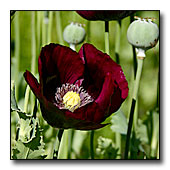
Quick Jumps
Growing Guide
Rainy Side Notes
GROWING GUIDE
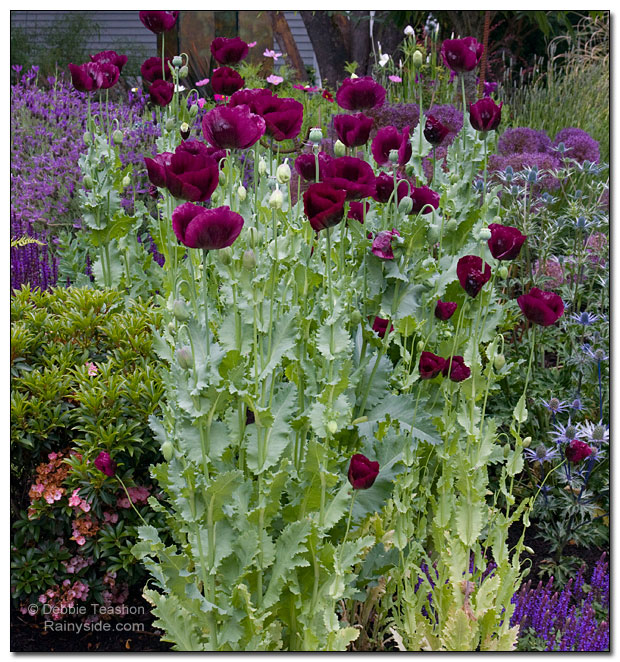
Origin:
Garden.
Plant Group:
Annuals
Hardiness:
Sunset zones: All.
USDA zones: 3-8.
Heat zones: 8-1.
Mature size:
Height: 4 feet (1.2 m).
Width: 12 inches (30 cm).
Flowering period:
Late spring.
Flowering attributes:
Large, bowl-shaped flower with grape-hued petals has a darker purple blotch at the base of each petal.
Leaf attributes:
Big, lettuce-like, soft blue-green to sea-green, oblong leaves with deep lobes.
Growth habit:
Upright.
Light:
Full sun.
Soil:
Fertile, well-drained soil.
Feeding:
Fertilize with a complete organic fertilizer.
Propagation Methods:
In early spring or fall, sow seed in situ.
Rainy Side Notes
This drought-tolerant, heirloom poppy is quite popular to grow—I see this cultivar growing in many gardens around the Pacific Northwest. The good news is the annual reseeds itself, so if you aren't too keen on sowing every year, buy one plant and let it go to seed. When the pod dries out on the stalk, cut it, turn it upside-down and shake the pod, spilling the contents on the bare ground wherever you want it to grow. Let Mother Nature do it for you if you can't be bothered with that.
For cooking purposes, when the pod dries, turn the pod upside in a bag and shake the generous amount of seed out. The pods also look great in dried arrangements and are used extensively for crafts, even spray-painted gold and placed in Christmas wreaths.
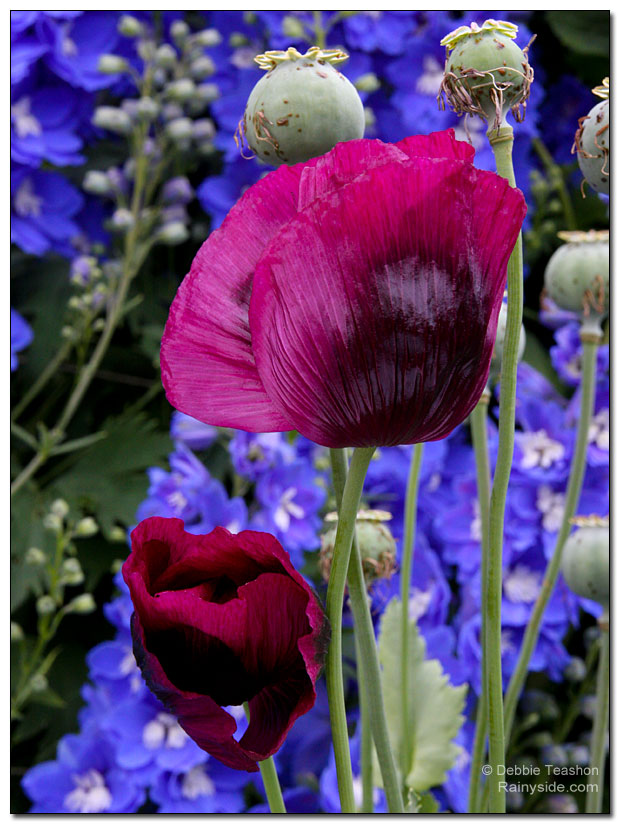
Although it is illegal to grow opium poppies (Papaver somniferum) in the United States, gardeners around the country ignore the law and develop them for fresh flowers, dried pods for arrangements and crafts, or seeds for cooking.
It is legal to have or sell the seed; however, you have to grow large pod quantities to make enough opium for use. With that many plants, hiding what you are doing would be impossible. I am sure there are some stupid people out there doing just that. The law should be changed so that a small backyard patch of opium poppies would be legal to grow, as long as they were produced for ornamental or culinary purposes only.
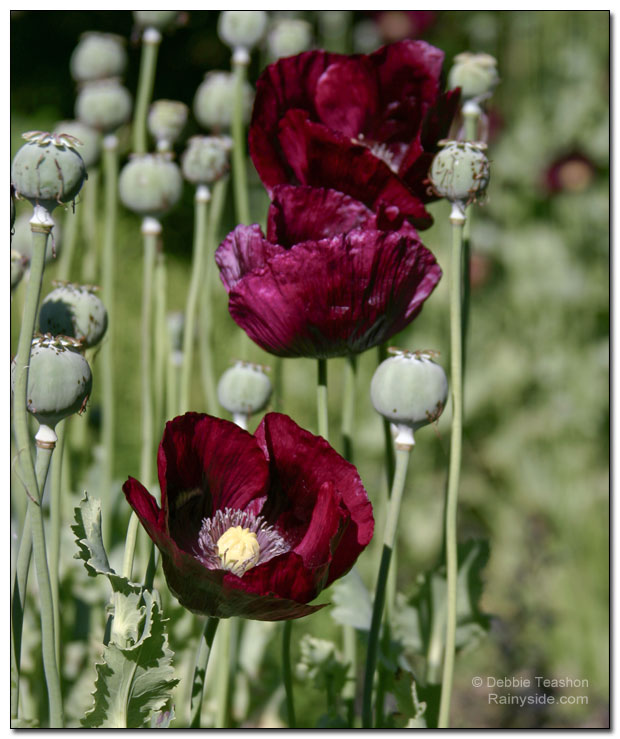
Debbie Teashon
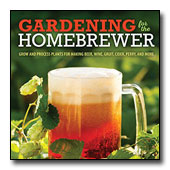
Gardening for the Homebrewer: Grow and Process Plants for Making Beer, Wine, Gruit, Cider, Perry, and More
By co-authors Debbie Teashon (Rainy Side Gardeners) and Wendy Tweton
Copyright Notice | Home | Search | Annuals

